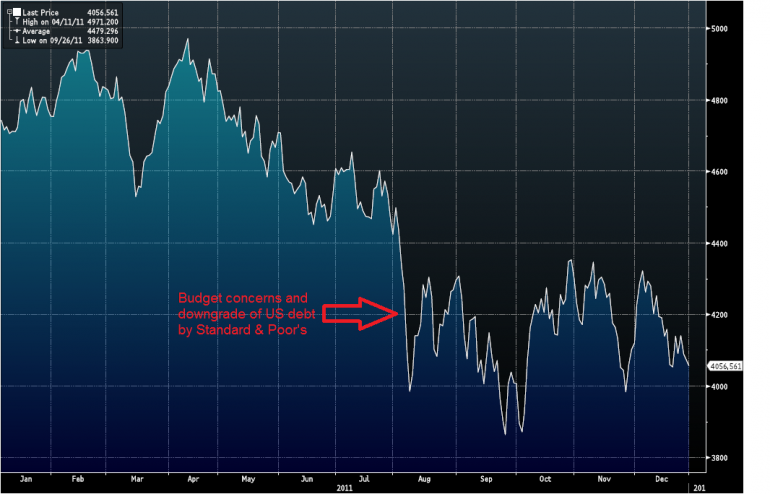Markets: US budget brinksmanship
Talks about budgets and debt ceilings have markets primed for a fright at the very least.
Not reaching an agreement on either the budget or the debt ceiling would have far-reaching economic consequences for the US. The problem is it would go against everything the Federal Reserve is trying to achieve by maintaining the bond buying programme to support the economy.
In short, the decision by the Federal Reserve to not start tapering should be taken as acknowledgement the US economy cannot afford any disruptions that could damage domestic growth. This being the case, it looks as if a government shutdown would scare the pants off investors.
A budget shutdown is tipped to wipe 1.4 per cent from fourth quarter GDP. Given the Fed’s drastic monetary policy action, not reaching a budget agreement and resolution over the debt ceiling limit is counterproductive to what the Federal Reserve is trying to achieve.
Unfortunately with competing interests at the forefront of the budget debate, logic may not prevail for the politicians.
Any slip in US growth is going to impact the Federal Reserve’s decision to actually begin tapering. Data was as good as it could have been in September, but this may not be the case again anytime soon if the US government does in fact shut down. It also potentially poses problems for the unemployment rate, which has been aggressively targeted by the Federal Reserve.
While the US Congress must agree on a budget deal by midnight on Monday (Tuesday afternoon local time), an equally pressing issue for markets is the looming debt ceiling. International equity markets at the end of last week were largely untroubled by the impending issues, in what is shaping up to be a very different story to the debt ceiling panic of August 2011.
If markets follow a similar path, equity markets will lose ground quickly and the yield on the 10-year Treasury note will slip as investors favour safety over risk.
In August 2011, the Dow Jones average lost 15 per cent in less than a month as investors worried about the debt ceiling. The yield on Treasuries lost more than one per cent during this time. Domestically, investors were panicking and the ASX 200 lost over 11 per cent in the blink of an eye.

Source: Bloomberg
All of the data and commentary from US government officials is suggesting risk-off could become the prevalent theme for markets over the next week or so. With talk of the Treasury yield falling further from here, we could be looking at the beginning of a rotation back into bonds in general as investors scramble for safety.
















